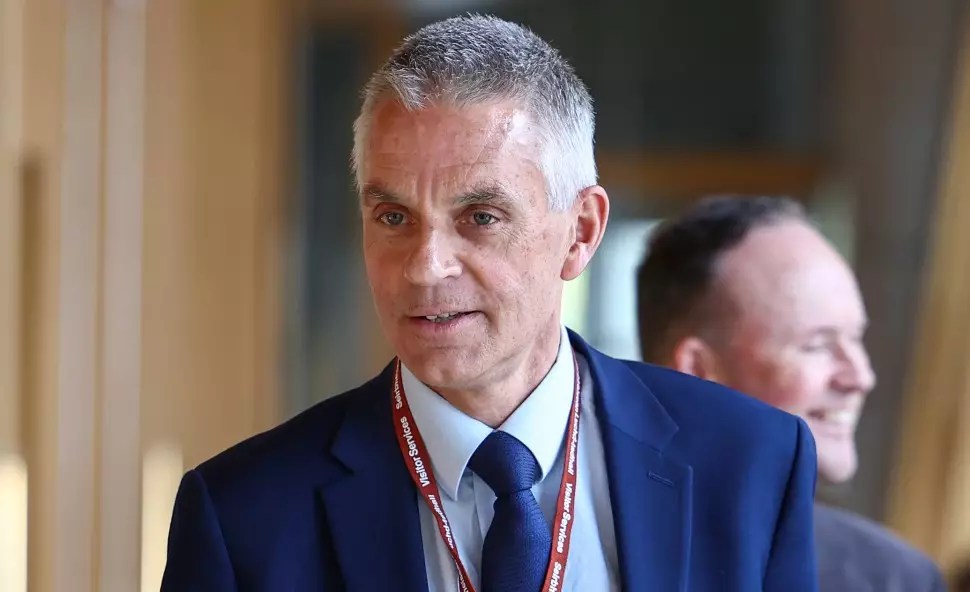The broadcasting industry stands at a critical juncture in its history, where the forces of climate change and sustainability demand urgent action. Tim Davie, the Director General of BBC, is leading this charge by advocating for the integration of climate and sustainability themes into media content. His upcoming address at the Climate Creatives event is a testament to the growing recognition of the industry’s unique power to shape public discourse on these crucial issues. The implications of this initiative extend far beyond mere corporate responsibility; they represent a profound creative opportunity for producers, commissioners, and storytellers.
Davie’s upcoming speech highlights a transformative moment for the industry. He asserts that addressing sustainability and climate issues should be a priority across all media segments, from entertainment to children’s programming. This shift not only acknowledges the public’s growing interest in environmental matters but also opens doors for innovative storytelling. By repositioning these themes from exclusive documentaries and current affairs to mainstream entertainment, the BBC and other networks can engage audiences who may not actively seek out environmental content.
In recent years, viewers have expressed an increasing desire for content that informs and entertains while tackling the pressing concerns of our time. Davie emphasizes that the broadcasting sector, particularly public service broadcasters, possesses a unique platform to advocate for these issues creatively. The challenge now is to bring these topics alive, presenting them not as a series of somber messages, but as part of engaging narratives that resonate with diverse audiences.
Davie’s message at Climate Creatives serves not only as a rallying cry for the BBC but also as an invitation to the entire industry. He underscores the importance of collaboration among broadcasters, producers, and independent creators to foster a culture where sustainability is a key focus. His belief that the industry can collectively “rewire” programming to create a positive impact suggests a paradigm shift where content creation becomes a collective responsibility rather than an isolated endeavor.
The collaborative nature of this initiative reflects a growing understanding that climate change is a multifaceted challenge that requires diverse perspectives to address effectively. By encouraging dialogue among stakeholders, including independent filmmakers and major networks like ITV and Channel 4, the industry can formulate a unified approach to climate issues. This collaboration could potentially lead to groundbreaking content that not only raises awareness but also inspires actionable change.
In the traditional broadcasting landscape, environmental themes have often been relegated to niche documentaries. Davie’s vision aims to expand this paradigm, placing sustainability at the heart of various genres. This includes drama series, reality shows, and even children’s programming. By embedding climate narratives within popular formats, the goal is to reach broader audiences and foster deeper connections to the issues at hand.
Engaging with younger viewers is particularly crucial, as they are the foremost advocates for sustainability in contemporary society. Children’s programming that highlights environmental stewardship can encourage new generations to adopt sustainable habits early on. By doing so, the industry not only entertains but also cultivates a more conscientious audience that understands the value of sustainability.
The Climate Creatives event is more than just a conference; it symbolizes the escalating conversation surrounding environmental responsibility in media. With contributions from notable figures such as Chris Packham and various production leaders, this event serves as a vital platform for exchanging ideas and formulating strategic initiatives.
The participation of multiple UK cities—Belfast, Cardiff, Glasgow, and London—illustrates the widespread interest in addressing climate change through a creative lens. Live streaming opportunities ensure that discussions and insights can reach an even wider audience, promoting a culture of transparency and inclusivity in the dialogue surrounding sustainability in media.
Tim Davie’s emphasis on actively integrating sustainability and climate change into the broadcasting narrative marks a noteworthy evolution in the industry. By leveraging storytelling as a tool for change, broadcasters have the chance to redefine their role in society. The commitment to sustainability is not merely a response to external pressures; it represents a forward-thinking approach that acknowledges the influence of media on public perception.
As the industry moves forward, it is essential to maintain momentum and harness the creative potential within the sector. The challenge remains to inspire not just discussions about climate change but also actionable steps that audiences can take in their everyday lives. By embracing this transformative mission, broadcasters can become catalysts for sustainability, igniting hope and commitment in communities around the globe.


Leave a Reply